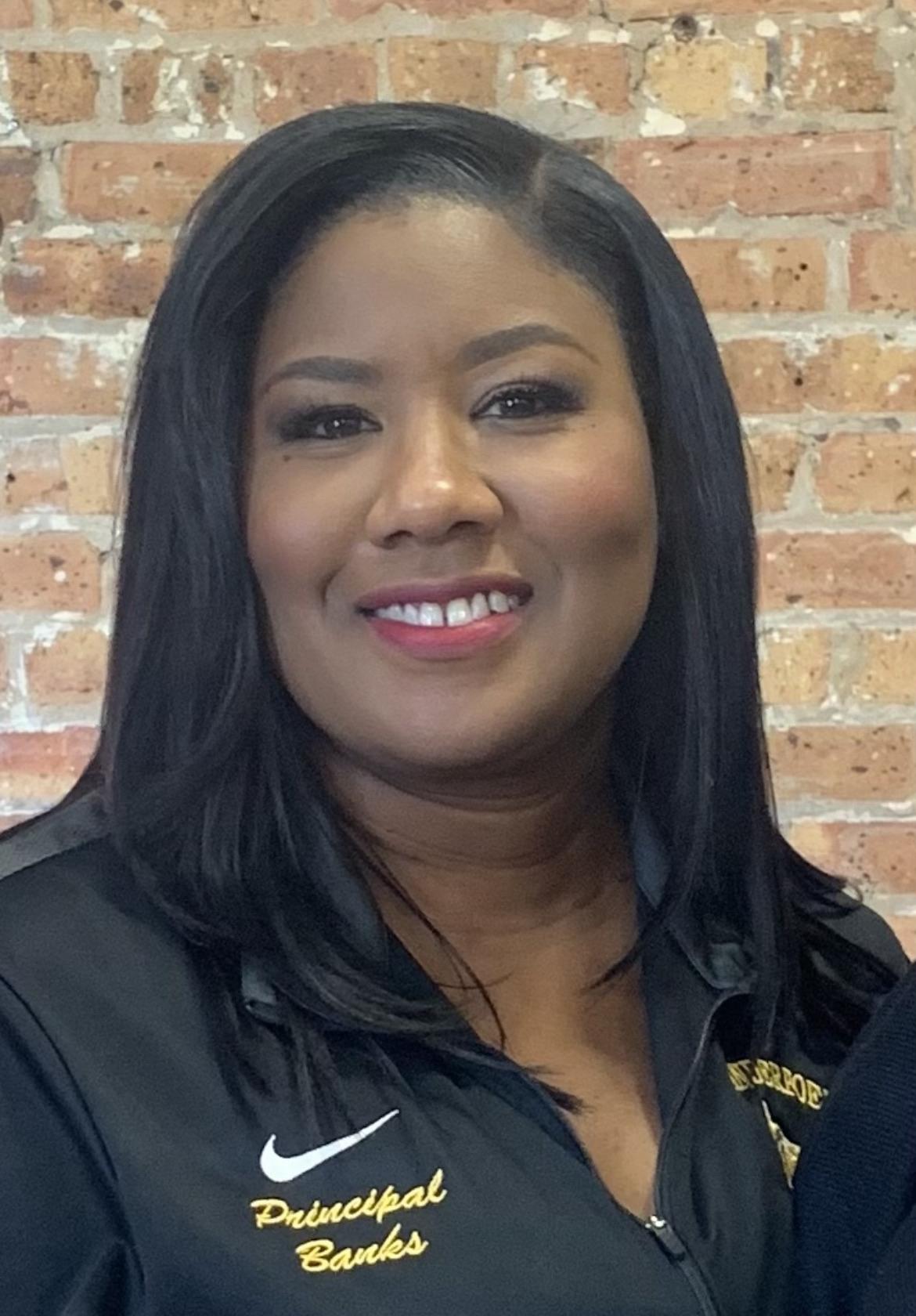National Women’s History Month 2024 honors women who advocate for equity, diversity and inclusion. As members of families, professions and military and civic life, women have been at the forefront of defending these longstanding national values. Even today, when equity, diversity and inclusion are under siege by powerful political forces, a majority of women continue to highlight the achievements of women and of all Americans regardless of race, age, disability and sexual orientation. Women have been strong advocates for all disadvantaged people and have made some of the greatest personal strides in the field of education and, today, more women than men have attained educational leadership positions that historically belonged to men. This month, we celebrate those women among our own.
The women in Chicago Principal Kia Banks’ life had a profound influence on her younger self. Her formidable mother Cynthia Rayford, her first inspiration, worked as an adult literacy expert and also managed a blended family of five children. But her mother’s influence was strong for many other reasons, Kia says. “She was my best friend.”
Kia was raised in Atlanta until age 12, when she moved to Chicago, which has been home ever since. When she graduated from Clark Atlanta University and headed back to Chicago to launch her career, her great aunt Georgia Rhodes prepared her to be “an independent woman in Chicago, protect myself and make connections.” Aunt Georgia had a high profile in the city, working for Mayor Jane Byrne. “I moved into an apartment that she owned, and she made sure I was knowledgeable enough to manage it, including repairs.” Above all, she taught Kia how to have confidence in herself and be at ease among everyone, from janitors to VIPs.
In retrospect, she says “I have had many negative experiences, but not specifically as a woman. I think this is because of the way I grew up….I never feel intimidated when I walk into a room with all male leaders.”
Her first job out of school in 1998 was teaching English language arts (ELA) and social studies at William Penn Elementary School on the West Side of Chicago. “Teaching 7th grade on the West Side wasn’t easy, but it was amazing,” she says. She stayed five years.
In 2003, when Kia became a teacher at Alfred D. Kohn Elementary School, Principal Carol Briggs saw in her what Kia didn’t see in herself: “She didn’t give me a gentle nudge, but a real push into leadership.”
Among other leadership responsibilities she held there, she served as a literacy coach and master teacher. She delivered ELA instruction for students in 6th, 7th and 8th grades, and oversaw SES after-school programs.
It was no surprise that by 2013, she was instructional support lead in literacy for Chicago Public Schools, responsible for 97 schools. Without having planned it, she soon had three master’s degrees—in human services, reading and literacy, and education and leadership.
Although she also hadn’t planned to be a principal, in 2015, she was appointed interim and, after one year, named contract principal of John H. Vanderpoel Humanities Academy, a Chicago public magnet school for grades K–8, where she remains today. Under her leadership, the emphasis on fine and creative arts has grown. She has managed $100,000 in grant-funded projects in the arts. Vanderpoel was awarded Creative Arts Excelling Certification and Emerging Supportive Schools Certification in 2018, allowing for a dramatic increase in arts-integrated academic programming for students and community members.
Always on the go, Kia is the charter president of the Magnificent Mile Chapter of Jack and Jill of America, and a 28-year member of Delta Sigma Theta Sorority, and is heavily involved in philanthropic, leadership and service projects with both organizations. Among her many accolades, she was awarded a Cahn Fellowship for Distinguished Principals and was selected for the Harvard Professional Learning Experience.
“The most memorable part of the great Cahn experience was our weekend at Gettysburg,” she recalls. The fellows examined the thought processes of Civil War leaders, and she became fascinated by Confederate General Robert E. Lee, who was believed to be “in a toxic mind state” and had to make decisions that affected a vast number of people in the deadliest battle of the Civil War. She says she never forgot “how a single person in charge can take tremendously consequential action.”
Recalling the Harvard program, she says, “We were about 127 principals from around the world and this was the best professional learning experience of my life. It built upon every other experience and really showed me how the power and influence of strong school leaders can literally change the world.” On top of that, she enjoyed unforeseen benefits by bringing her mother and her 7-year-old daughter Aria along. When she was presented with her Harvard certificate at the end of the program, her mother and daughter were presented with certificates of their own.
“Ever since then, Aria has set her sights on attending Harvard,” she says.
Nowadays, Kia wrestles with the crisis of recruitment and retention of teachers and administrators, including principals. She says, “I don’t believe we are doing a good job of making the education profession look attractive to younger generations. Being an educator is the greatest accomplishment of my life and I believe we are obligated to open doors for others to follow.”
“It’s why I’ve become a more active member with the Chicago Principals & Administrators Association (CPAA, AFSA Local 2),” she adds. “Assuming the position as chief of staff to the governing board and president of CPAA has allowed me to make history as we successfully passed Illinois state legislation to restore bargaining power to Chicago’s principals and administrators and are now negotiating our first contract with the Chicago Board of Education.”
For someone who never actively aspired to be a principal, Kia has “never looked back.” She says, “I can’t believe I’m paid to do what I love.”

